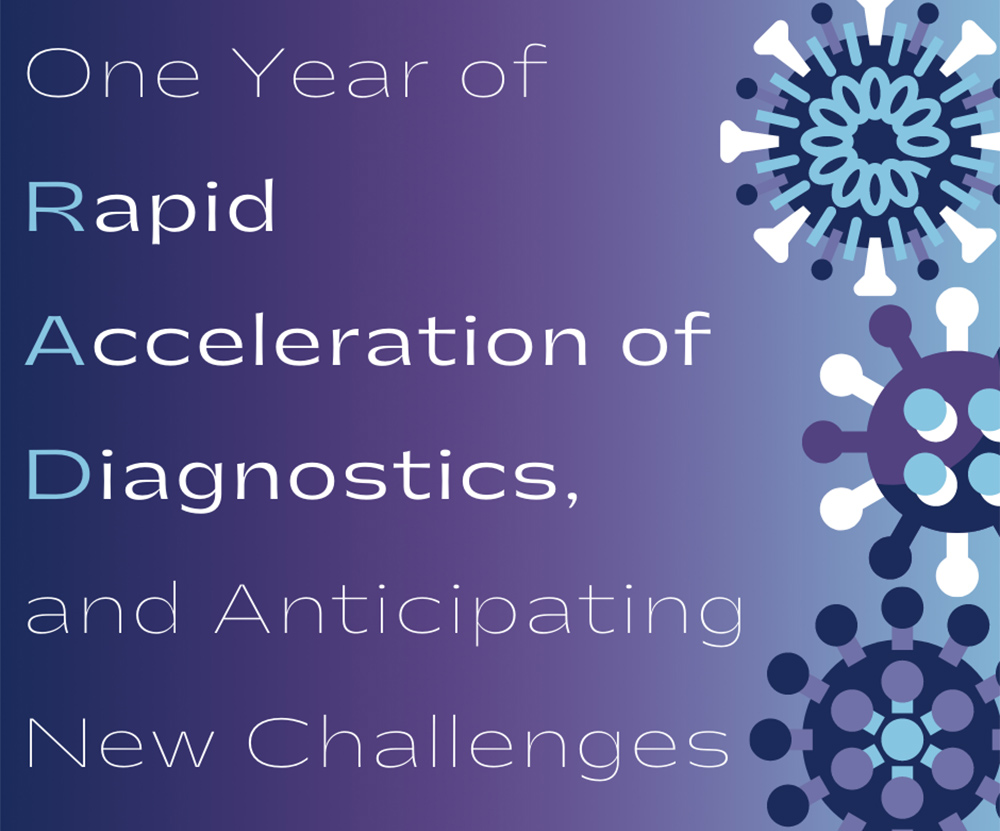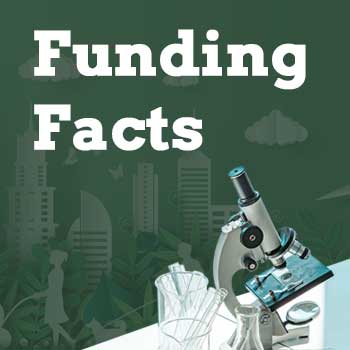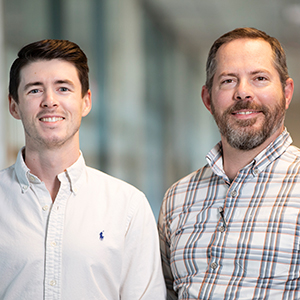Four new Funding Opportunity Announcements (FOAs), issued April 13, will move a program called RADx(SM) Underserved Populations (RADx[SM]-UP) rapidly into its next phase.
RADx(SM) is a four-part National Institutes of Health (NIH) initiative to speed up innovation in developing and implementing COVID-19 testing technologies. RADx(SM)-UP funds ways to increase access to that testing and improve COVID-19 health outcomes in underserved and vulnerable populations.
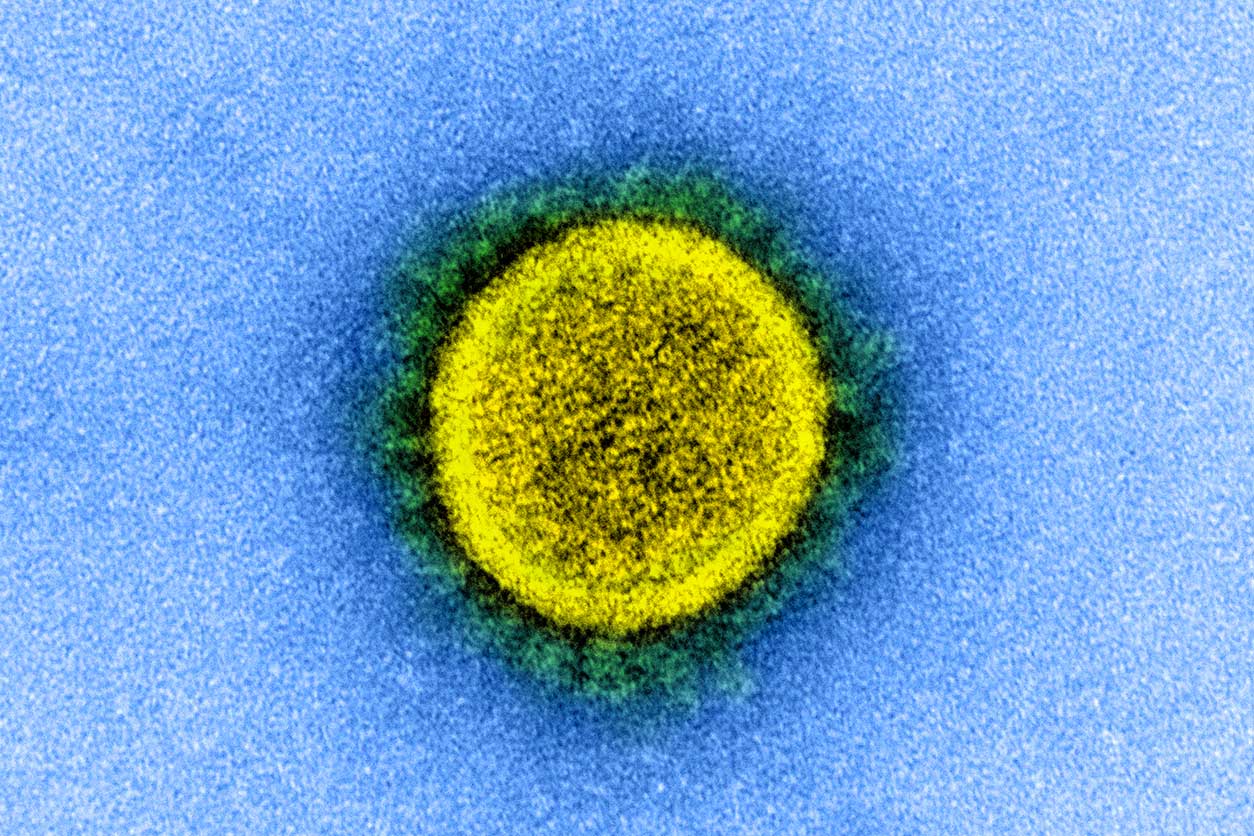 Transmission electron micrograph of a SARS-CoV-2 virus particle, isolated from a patient. RADx(SM) supports virus testing in a variety of ways. (Photo courtesy of National Institute of Allergy and Infectious Diseases)
Transmission electron micrograph of a SARS-CoV-2 virus particle, isolated from a patient. RADx(SM) supports virus testing in a variety of ways. (Photo courtesy of National Institute of Allergy and Infectious Diseases)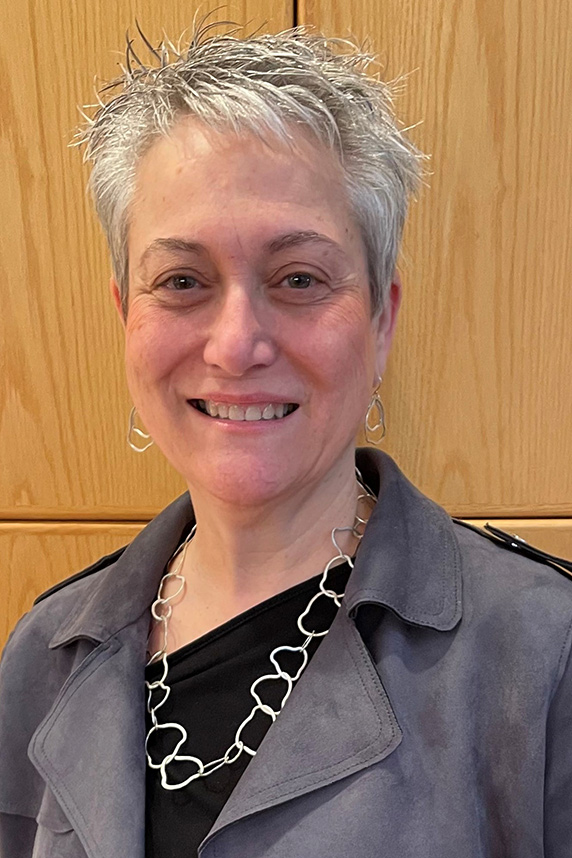 “Communities that have experienced long-term exposures to harmful environmental chemicals are susceptible to the effects of the SARS-CoV-2 virus,” said Collman. (Photo courtesy of Gwen Collman)
“Communities that have experienced long-term exposures to harmful environmental chemicals are susceptible to the effects of the SARS-CoV-2 virus,” said Collman. (Photo courtesy of Gwen Collman)“We urge environmental health scientists to apply for these grants, so that testing can be brought to environmental justice and other communities who may be susceptible to the SARS-CoV-2 virus,” said NIEHS Acting Deputy Director Gwen Collman, Ph.D.
In Phase I, RADx(SM)–UP funding helped establish a consortium of community-engaged research projects to increase COVID-19 testing and to better understand the social, ethical, and behavioral implications of that testing.
In Phase II, researchers will advance this work by developing interventions to increase testing and decrease pandemic health disparities.
“Continued testing will be an important strategy, especially in underserved populations, to addressing the pandemic,” said Lindsey Martin, Ph.D., a health scientist administrator in the NIEHS Population Health Branch.
Two of the FOAs (designated by the prefix U01) fund emergency cooperative agreements. The other two are an administrative supplement to existing grants, and a competitive funding opportunity to revise existing grants. The American Rescue Plan Act of 2021 provided the funds for this program.
The four announcements
RFA-OD-21-008—This Request for Application (RFA) seeks research proposals for testing interventions with two objectives:
- Help reduce COVID-19 health disparities among underserved and vulnerable populations.
- Address scientific questions on testing in the context of SARS-CoV-2 vaccine availability.
 “We need strong, evidence-based and community-engaged implementation strategies to increase uptake of testing in communities,” said Martin. (Photo courtesy of Lindsey Martin)
“We need strong, evidence-based and community-engaged implementation strategies to increase uptake of testing in communities,” said Martin. (Photo courtesy of Lindsey Martin)Applicants can propose a new project or expand a current Phase I project.
NOT-OD-21-103—This Notice of Special Interest (NOSI) has the same objectives as the RFA above. Under this NOSI, researchers compete for funding that expands the scope of existing grants. Phase 1 grants were also competitive revisions.
RFA-OD-21-009—This RFA will support research to understand the social, ethical, and behavioral implications of COVID-19 testing interventions in underserved and vulnerable populations. Phase II studies should move beyond descriptive health disparities research to focus on solutions that involve collaboration with community partners and stakeholders.
NOT-OD-21-101—This NOSI offers an additional year to current RADx(SM)-UP Phase I projects. The goal is development of brief interventions at RADx(SM)-UP testing sites that will make the most of effective outreach, education, and communication. NIH strongly encourages collaboration with Community Engagement Alliance (CEAL) Against COVID-19 Disparities research teams in the same geographical region.
(John Yewell is a contract writer for the NIEHS Office of Communications and Public Liaison.)





